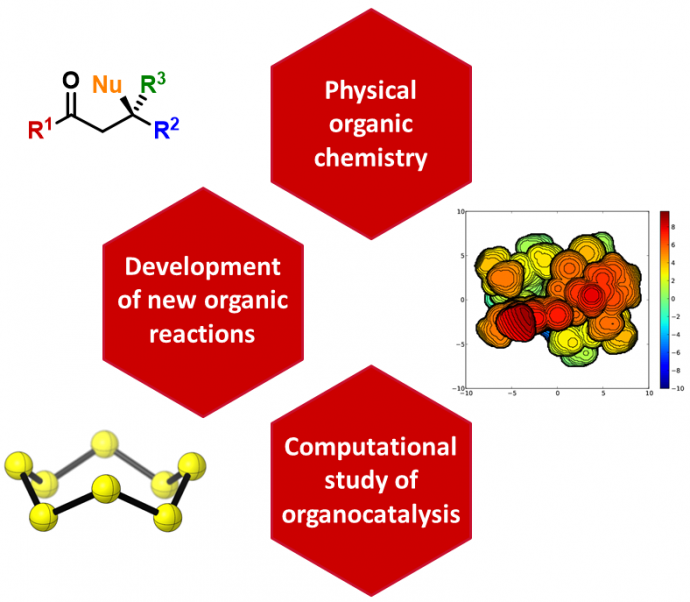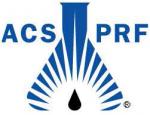Research
Research in the Champagne group

Synthesis of functionalized, chiral building blocks for pharmaceutical applications
Recent reports indicate that chiral, tri-dimensional molecules have a higher success rate in medicinal chemistry, and as such the development of organic reactions to form chiral molecules is as important as ever. We are interested in developing new transformations to access chiral building blocks that are versatile for the synthesis of pharmaceutically-relevant molecules such as amino acids and heterocycles. Our work focuses on new applications of phase-transfer catalysis, which is the preferred form of organocatalysis used in industry due to its scalability and lack of transition metal impurities. We also design new catalyst scaffolds and test them for expanding the applicability phase-transfer catalysis to a broader scope of substrates.
Expanding the use of elemental sulfur in organic chemistry and understanding biochemical polysulfides
Sulfur is a major by-product of petroleum processing and its production greatly surpasses its use, therefore huge stockpiles of the yellow solid grow around the world. We wish to expand the use of sulfur and polysulfides in organic chemistry by studying their reaction pathways using state-of-the-art Density Functional Theory (DFT) calculations, and by developing new chemical reactions that employ elemental sulfur, polysulfides, and derivatives, as building blocks for the synthesis of high-value heterocycles. Specifically, we develop reactions that do not require high temperatures or metal catalysts, using instead bifunctional substrates such as arynes. We are also studying how polysulfides react under biological conditions, as they are important intermediates involved in the H2S signaling pathways that are crucial in mammalian cells.
Computational investigations of organocatalyzed transformations
DFT calculations are now a widely-used tool to study mechanisms of organic reactions, as they allow investigations of transition structures at a reasonable computational cost. We use DFT calculations to study the origins of selectivity in chiral organocatalyzed reactions, so that we can fully understand their mechanisms and develop models of selectivity. Ion-pairing catalysis (also called phase-transfer catalysis) is our focus, for it is a method of choice for industrial asymmetric synthesis, yet the roles of the catalysts in the enantioselectivity is poorly understood. These computational studies will allow us to design better catalysts for industrially-important transformations.
Funding
We are grateful for the following agencies for funding our research over the years.
eXtreme Science and Engineering Discovery Environment (XSEDE)

TG-CHE190061
TG-CHE200081
American Chemical Society (ACS) Petroleum Research Fund (PRF)

61891-DNI4 (2021-2023)
